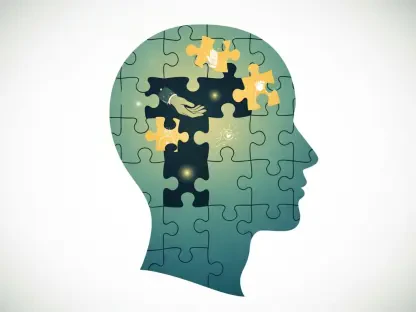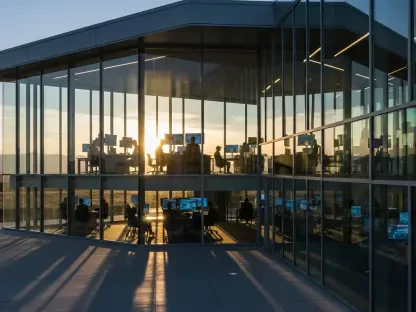Navigating the maze of mental health care options can be an overwhelming challenge for veterans, especially when affordability and quality are top concerns in a region as vast and varied as Northern California. Spanning from the bustling streets of Sacramento to the scenic shores of the Bay Area, this area is home to a significant veteran population with unique needs shaped by their military service. Many grapple with invisible wounds such as post-traumatic stress disorder (PTSD), anxiety, and substance use disorders, often compounded by the difficulties of transitioning to civilian life. Fortunately, Northern California offers a wealth of specialized programs designed to address these issues with both compassion and cost-effectiveness in mind. This article delves into the landscape of mental health services tailored for veterans, highlighting key facilities, approaches, and strategies to ensure accessible care. By shedding light on these resources, the goal is to empower veterans and their families to find the support they deserve without financial strain.
Understanding the Unique Mental Health Needs of Veterans
Veterans often face psychological challenges that are deeply rooted in their military experiences, setting their mental health needs apart from the general population. Conditions like PTSD, depression, and substance use disorders frequently emerge from the stresses of combat or prolonged deployments, while the shift to civilian life can bring feelings of isolation or loss of purpose. In Northern California, a region with a strong veteran community, there’s a growing recognition of these distinct struggles. Facilities across Sacramento, the Bay Area, and beyond have developed programs that prioritize understanding military culture, ensuring that treatment resonates with those who have served. This cultural competence is vital, as it fosters trust and encourages veterans to seek help without fear of judgment, addressing barriers that might otherwise prevent them from accessing care.
Beyond cultural understanding, the mental health landscape for veterans in Northern California emphasizes specialized care for service-related trauma. Many centers focus on evidence-based therapies tailored to address the root causes of distress, such as memories of combat or operational stress. The availability of such targeted interventions means that veterans aren’t forced into generic treatment models that may not fully grasp their experiences. Instead, they can engage with providers who are trained to handle the nuances of military-related mental health issues. This focus ensures that care is not only relevant but also effective, providing a foundation for recovery that acknowledges the sacrifices made during service and the unique healing journey that follows.
Key Factors in Finding Affordable and Quality Care
When seeking mental health care, veterans in Northern California must weigh several critical factors to ensure both affordability and effectiveness. A primary consideration is whether a facility participates in the VA Community Care Network (CCN) or accepts TRICARE insurance, as these affiliations significantly reduce out-of-pocket expenses. Many top programs in the region align with these systems, making high-quality care accessible without imposing a heavy financial burden. This integration with veteran-specific insurance and networks is a game-changer, allowing individuals to focus on recovery rather than worrying about mounting bills or inaccessible services.
Another essential factor is the comprehensiveness of services offered by these programs. The best facilities provide a continuum of care, ranging from intensive inpatient detoxification to flexible outpatient therapy sessions. This spectrum ensures that veterans can transition through different stages of treatment as their needs evolve, without having to navigate multiple disconnected providers. Additionally, geographic proximity plays a role, as centers located across Northern California—from urban hubs like Sacramento to quieter areas like San Rafael—make it easier for veterans to find care close to home. By prioritizing these elements, the region’s mental health providers demonstrate a commitment to removing barriers and delivering practical, sustainable solutions for those who have served.
Highlighting Top Mental Health Programs for Veterans
Northern California boasts an impressive array of mental health programs specifically catering to veterans, each with a strong focus on affordability and specialized care. Centers such as Diamond House Detox in Elk Grove and Sacramento, Sierra Health + Wellness with multiple locations, and Bayside Marin Treatment Center in San Rafael stand out for their dedication to this population. These facilities offer targeted treatments for PTSD and co-occurring disorders like substance use, employing proven methods such as Cognitive Behavioral Therapy (CBT) and Eye Movement Desensitization and Reprocessing (EMDR). Their partnerships with the VA and acceptance of TRICARE ensure that financial constraints don’t hinder access to these vital services, making recovery a realistic goal for many.
What sets these programs apart is their tailored approach to veteran care, recognizing the distinct challenges tied to military service. For instance, Diamond House Detox provides a private, boutique-style setting with veteran-run operations, creating an environment of trust and understanding. Meanwhile, Sierra Health + Wellness emphasizes seamless transitions between inpatient and outpatient care, addressing complex needs through integrated treatment plans. Bayside Marin balances upscale amenities with trauma-focused recovery, proving that high-quality care can still be accessible. These examples illustrate the diversity of options available, ensuring veterans in Northern California can find a program that aligns with their personal circumstances and preferences for healing.
The Role of Trauma-Informed and Holistic Therapies
A defining feature of mental health care for veterans in Northern California is the widespread adoption of trauma-informed approaches, which acknowledge the profound impact of military service on emotional well-being. Many programs prioritize therapies designed to directly address trauma, such as EMDR and Cognitive Processing Therapy (CPT), which help process distressing memories and reshape negative thought patterns. This focus is crucial, as it recognizes that conditions like PTSD often underpin other struggles, including anxiety and substance use. By centering treatment on trauma, facilities ensure that veterans receive care that tackles the core issues rather than just surface symptoms, fostering deeper and more sustainable recovery.
Complementing these clinical interventions are holistic therapies that aim to heal the whole person, not just the mind. Across the region, centers incorporate practices like mindfulness, yoga, and ecotherapy, which encourage veterans to reconnect with themselves and their surroundings in meaningful ways. These approaches provide tools for managing stress and building resilience, addressing aspects of well-being that traditional therapy might overlook. For example, engaging in expressive arts or nature-based activities can offer a therapeutic outlet for emotions that are hard to articulate, while also promoting a sense of calm and balance. This integrative model reflects a broader understanding that recovery for veterans requires a multifaceted strategy, blending science with personal growth.
Building Healing Through Community and Peer Support
One of the most powerful elements of mental health care for veterans in Northern California is the emphasis on community and peer support as a cornerstone of recovery. Many facilities, such as California Recovery Center in Sacramento, create environments where veterans can connect with others who share similar experiences, fostering a sense of belonging and mutual understanding. These peer-driven settings help combat the isolation that often accompanies the transition from military to civilian life, offering a space where individuals can share their struggles and triumphs without fear of misunderstanding. This camaraderie becomes a vital source of strength, reinforcing that no one has to face their challenges alone.
Further enhancing this approach, some programs are led or staffed by veterans themselves, adding a layer of empathy and insight that’s hard to replicate. Diamond House Detox, for instance, leverages its veteran-run model to build trust and provide care rooted in firsthand knowledge of military life. This shared background creates a safe haven where veterans feel truly understood, encouraging them to engage more fully in their treatment. The focus on community not only aids emotional healing but also builds accountability, as peers motivate each other to stay committed to recovery goals. Such connections prove that healing often happens not in isolation, but through the bonds formed with those who have walked a similar path.
Tailoring Care to Individual Veteran Needs
The diversity of mental health programs in Northern California ensures that veterans can find care suited to their specific needs and circumstances, whether they require immediate intervention or ongoing support. Facilities like New Start Recovery Solutions, with locations in Concord, Chico, and Sacramento, prioritize rapid access to detox and residential treatment, catering to those in urgent need of stabilization. In contrast, Sierra Health + Wellness focuses on long-term continuity, guiding veterans through various levels of care as they progress in recovery. This range of options means that no matter where someone is on their journey, there’s a program designed to meet them at that point, offering personalized pathways to healing.
Additionally, the variety in program settings—from the private, intimate atmosphere of Diamond House Detox to the upscale yet accessible environment of Bayside Marin Treatment Center—allows veterans to choose a space where they feel most comfortable. Despite these differences, a shared commitment to affordability through VA partnerships and specialized trauma care unites these centers. This flexibility empowers veterans to take control of their recovery, selecting a program that aligns with their personal preferences and logistical needs. The ability to match care to individual situations underscores Northern California’s dedication to honoring veterans by providing accessible, relevant support that respects their unique stories.
Moving Forward with Accessible Recovery Solutions
Reflecting on the strides made in Northern California, it’s evident that a robust network of mental health programs has been established to support veterans with affordable, specialized care. Facilities across the region have demonstrated a profound commitment to addressing the invisible wounds of service through trauma-informed therapies, holistic approaches, and peer support systems. Their alignment with VA systems and insurance networks like TRICARE has effectively dismantled financial barriers, ensuring that quality treatment is within reach for those who have served.
Looking ahead, the focus should remain on expanding awareness of these resources, encouraging veterans to take that critical first step toward healing. Families and community advocates can play a pivotal role by spreading the word about these programs and offering support in navigating the system. Additionally, continued collaboration between facilities and veteran organizations could further streamline access, ensuring no one slips through the cracks. The foundation laid in Northern California serves as a model of what’s possible when care is prioritized, and the next steps involve building on this momentum to sustain and enhance recovery options for all who have sacrificed so much.









